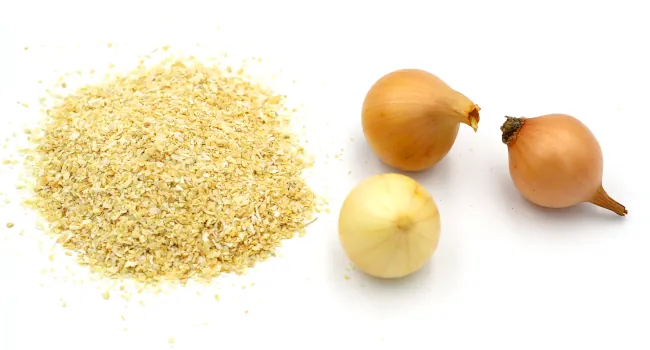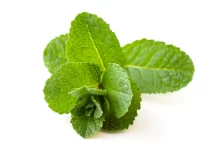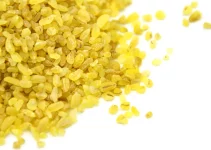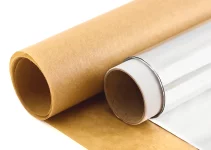The slightly complicated thing about finding the best substitute for onion powder is that this is a dry spice so using the fresh equivalent (raw onions) might not go well for some recipes. That’s one thing you’ll have to decide for yourself.
However, there are situations where you can use fresh vegetables as substitutes. I will focus on that since onions are one of the most used vegetables on the planet. You’ll definitely have plenty of them in the house to use as a replacement.
Even so, there are a few other substitutes to consider. Moreover, you might even be interested in making your own onion powder. Well, that’s something for those who enjoy using a food dehydrator or an oven.
Table of Contents
Best Substitute for Onion Powder: Top 10 Alternatives
If you feel that none of these substitutes would work for your recipe or you can’t find many of them to buy, then just skip adding the onion powder or its replacement entirely.
Sometimes the easiest solution is just to skip on adding an ingredient, especially if you decide that it won’t influence the recipe all that much.
For example, if you want to make a spice blend and the onion powder is the only missing ingredient, just skip it and make the blend anyway.
1. Raw onions (white, yellow, red)
If you decide that the recipe will work well enough with raw onion as the best substitute for onion powder then definitely use it. You’ve quickly found the answer to your quest.
For example, if onion powder is added to ground meat to make meatballs, I would say that you can use fresh onions.
Just chop them in very tiny squares or use a food processor to almost obtain a paste.
You can also grate them and then give them a squeeze to get rid of excess liquid.
Make sure that your raw meatballs aren’t too wet because fresh onions definitely have a higher water content than a dry spice. You still need for your meatballs to hold their shape.
In terms of measurements, I would recommend this substitution:
- 1 teaspoon onion powder = 3 tablespoons fresh chopped onion
- 1 tablespoon onion powder = one medium chopped onion
2. Shallots
You can also use shallots if you have them.
Shallots are a perfect substitute for the regular raw onions that we use in so many dishes.
Since shallots are a substitute for raw onions, you can also regard shallots as the best substitute for onion powder.
Shallots are sweeter and they don’t have the same intense onion taste, they’re pretty awesome.
So we established that you can add raw onions/shallots to meatballs instead of powder and still get a very delicious result.
However, if the onion powder is part of a spice mix that is added to batters, light coatings of flour or whisked eggs, or to sauces, then using fresh onion/shallots is not going to work.
Your only salvation would be if the sauce already includes fresh onions among its ingredients. In that situation, you just have to add a bit more chopped onions or chopped shallots to compensate for the powder and that’s it.
3. Onion flakes (the best substitute for onion powder)
Chances are that if you can’t find onion powder where you live, you’re probably not going to find onion flakes either.
I don’t imagine that onion flakes are that readily available around the world in every store or supermarket.
Nevertheless, if your recipe can’t work with using the fresh vegetable as a replacement, the flakes remain the best substitute for onion powder.
The flakes have the advantage that they can be incorporated into a dry spice mix without ruining the balance by being wet or being added in a bigger quantity than the recipe requires.
They can be used in the same quantity as onion powder.
This is a 1:1 substitution, the easiest to make.
The flakes are simply dried minced onion. You can definitely make them at home, although it would be a lot easier if you could buy them.
Since the flakes are quite bigger than a powder, you can use a mortar and pestle to reduce them to powder form.
4. Minced onion
You can find minced onion sold in either jars or bags.
They look pretty much like onion flakes so use them the same way.
5. Granulated onion
Yet another form for this vegetable is granulated onion.
The only difference between the granulated form and the powder form is that the powder has been ground finer.
So, you can use them interchangeably, using the same quantity for both without any problems.
With granulated onion you don’t have to use a mortar and pestle, like you would have to do for flakes or minced onion if their coarser form can’t be used directly in recipes.
The advantage is that the granulated kind is already fine enough and ready to be used directly in whatever you’re cooking.
6. Garlic powder
Onion and garlic powder usually go hand in hand.
In a spice blend, these 2 are frequently added together.
If that’s the case, you have two options:
- add a bit more garlic powder to compensate for the lack of onion powder
- or just follow the quantities indicated by the recipe and skip entirely on the spice that you don’t have
If the recipe calls for onion powder being added to a mix of eggs, garlic powder, salt, pepper or to a mix of flour, garlic powder, salt, pepper to dredge the meats through, then I think you should add just a bit more garlic powder to compensate for the lack of onion powder.
To make the substitution: use 1/2 teaspoon garlic powder to replace 1 teaspoon onion powder.
Garlic powder still has a garlicky taste so I don’t recommend making a 1:1 substitution because the whole dish might end up tasting too garlicky.
7. Onion salt
I will be completely frank with you and admit that before doing research for this article I thought I knew about all the forms in which we can buy this vegetable.
However, I have never thought of onion salt.
You can use it as a substitute for powder but hold off on adding the salt that the recipe indicates because you might have added enough just by using onion salt.
It’s quite wonderful for seasoning meat.
8. Chives
In some instances, you can use chopped chives as the best substitute for onion powder.
If you’re making meatballs, you can add the chives to the ground meat and it won’t impact anything.
Some sauces or dressings will also work with chives being used as substitutes.
However, if you’re trying to make something like a tahini-ranch dressing or a white barbeque sauce, then you need to use any of the dry substitutes that I’ve mentioned above.
Chives also work as an awesome substitute for leeks.
Obviously, you can’t use chives if you’re making a spice mix or a dry rub or a batter.
9. Green onions (scallions)
If you don’t have chives, you can use green onions instead. They are used in the same way that chives are used and in the same quantities.
10. Celery powder
I won’t say that celery powder and onion powder have much in common when it comes to taste.
However, celery powder is an ingredient that can certainly deliver a very good flavor to dishes.
The good news is that it can also be added to a dry spice mix as the best substitute for onion powder without ruining anything. The final taste of the spice mix will be awesome.
If you can’t find celery powder, you can grind celery seeds until they become powder. The flavor resembles that of celery stalks.
You can make a 1:1 substitution between celery powder and onion powder.
How to Make Onion Powder At Home
I recommend using yellow onions since they are the easiest to find and also the cheapest.
I found the recipe here, if you want to check it out in its entirety because I will give you the abridged version.
Peel your onions, wash them and then you can: chop them finely, mince them in a food processor on the pulse setting or grate them.
If you grate them or use a food processor, you can easily squeeze them to get out as much onion juice as you can. That doesn’t work easily for the chopped ones.
Place parchment paper in a baking tray. Spread out the drained chopped/grated onions on parchment paper.
Preheat the oven at 170 degrees Fahrenheit.
Bake them for 5 hours or until they’re completely dry. They will turn a pinkish color.
Drying times will depend on the method used to chop the onions so check on them from time to time.
They should crumble in your hand by the end.
Then you can grind the flakes. You can use a food processor, a coffee grinder or a mortar and pestle.
However, if you use the coffee grinder, you might never get the taste of onion out of it again, which will make it useless for the next time you want to grind your coffee beans.
Store the powder in an airtight container and it will last several months. To get rid of excess moisture, I recommend adding a few grains of uncooked rice to the powder.
If you don’t want to search for the best substitute for onion powder, you can make your own and it will last you for many months.




